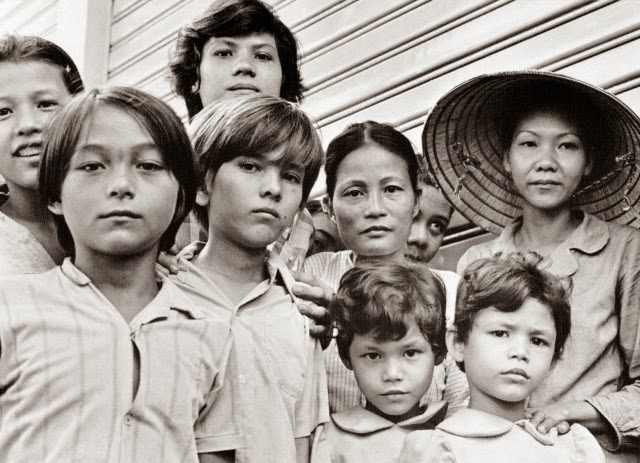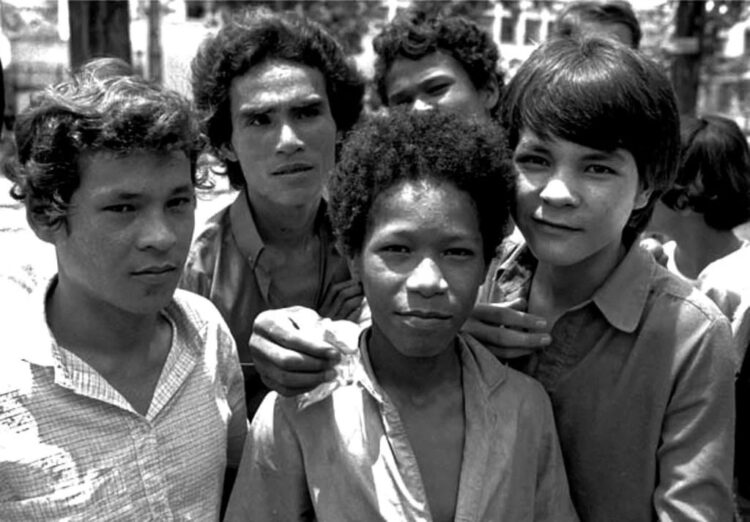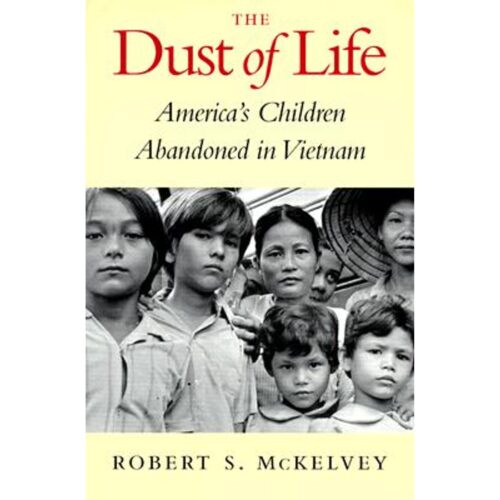The Vietnam War, which raged from 1955 to 1975, left a lasting impact on the country and its people. Among the countless tragic legacies of the conflict are the “bui doi” or “dust of life” – a term used to describe the abandoned or mixed-race children born to Vietnamese women and American servicemen. These children faced social stigma, discrimination, and a lifelong struggle for identity and acceptance. The Vietnam War remains etched in history as one of the most tumultuous and tragic conflicts of the 20th century. Amidst the horrors of war, the innocence of childhood was caught in the crossfire, giving birth to a generation known as the “Children of Dust.” These young souls, who bore witness to unimaginable suffering and destruction, endured the harsh realities of war while their childhood dreams and hopes were shattered.
The Origins of the Bui Doi: During the Vietnam War, numerous Vietnamese women entered relationships with American servicemen stationed in the country. These unions resulted in children who were often abandoned due to the social, economic, and cultural challenges faced by their mothers. The term “bui doi” emerged to describe these children who were left in limbo, caught between two worlds. The bui doi faced significant prejudice and discrimination within Vietnamese society. Their mixed heritage marked them as “outsiders” in a country where cultural and racial homogeneity were deeply valued. As a result, these children were often marginalized, facing barriers to education, healthcare, employment, and social integration. Many carried the burden of not knowing their American fathers, leading to a deep sense of abandonment and longing for connection. Their mixed heritage also meant they often struggled to fit into Vietnamese society or find acceptance among their American counterparts.
Many children in Vietnam found themselves orphaned or separated from their families during the war. The devastation of bombings, attacks, and military operations tore families apart, leaving children to fend for themselves in the midst of chaos. Some ended up in crowded orphanages, while others joined the ranks of street children, struggling to survive in a war-torn landscape. The Children of Dust were burdened with responsibilities far beyond their tender years. With limited resources and a lack of adult guidance, these children had to fend for themselves, often taking on the roles of providers for their siblings or becoming child laborers in order to survive. Their dreams of education and a carefree childhood were overshadowed by the harsh realities of war.
The psychological impact of war on the Children of Dust cannot be overstated. Many experienced severe trauma, witnessing atrocities and losing loved ones. The scars of war left an enduring mark on their mental health, leading to issues such as post-traumatic stress disorder (PTSD), anxiety, depression, and a loss of trust in the world around them. The legacy of war continued to haunt them long after the conflict ended. Despite the immense challenges they faced, the Children of Dust displayed remarkable resilience and strength. In the face of adversity, they sought solace in the bonds they formed with their peers, finding support and a sense of belonging within their communities. Some were fortunate enough to receive aid from humanitarian organizations and individuals who recognized their plight and provided assistance.
Over the years, humanitarian organizations and individuals have worked tirelessly to support the bui doi and address their needs. Charities and initiatives have provided access to education, healthcare, and vocational training, offering these individuals an opportunity to break free from the cycle of poverty and marginalization. Efforts to reunite the bui doi with their American families have also been undertaken, aiming to provide closure and a sense of identity. Their experiences serve as a reminder of the urgent need to protect and safeguard the well-being of children during times of war and conflict. The Children of Dust, forever etched in history, deserve our empathy, recognition, and support as they strive to rebuild their lives and reclaim their stolen innocence.
The Dust of Life is a collection of vivid and devastating oral histories of Vietnamese Amerasians. Abandoned during the war by their American fathers, discriminated against by the victorious Communists, and ignored for many years by the American government, they endured life in impoverished Vietnam. Their stories are sad, sometimes tragic, but they are also testimonials to the strength of human resiliency.



